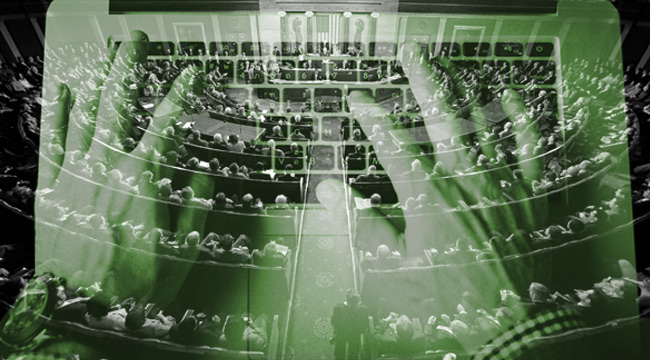
The Trump administration’s embrace of business interests and their war on regulation (specifically those put in place by the Obama administration) is quite real and quite strong. And a little more than 2/3 of the way through his first 100 days in office, those ideals have led the administration down some paths that have sent a shiver through many Americans because consumer protections and business interests don’t typically align.
Take the effort by the Senate to roll back transparency and data protections imposed on internet service providers by the Obama administration. The House agreed, making President Trump the last line of defense. And it’s not exactly an imposing firewall. CNN reports that the White House is ready, willing, and now able to sign this bill that will allow your ISP to sell your browsing and location data to the highest bidder. And they don’t have to tell you what they’re collecting or who they’re selling it to, either.
Feel like you have nothing to hide? That’s true of most of us, but there are still reasons to be concerned.
It Puts You At Risk
If you follow the news, it’s not any sort of big secret that private companies are terrible at protecting your data. Mark Zuckerberg can’t even protect himself from hackers. With location data, browsing data, and other information at their fingertips, hackers could easily breach your passwords, fill your Facebook wall with spam, and otherwise make your life miserable, even if you do everything right, just because a third party bought your data and left it sitting around on the internet.
You Can’t Opt Out Of It
Another issue that isn’t considered here is that this is essentially unavoidable. Few places in the U.S. have more than one internet provider, so, if you want to opt out, your choice is to either be on the internet or not. For many people that’s unacceptable, and it seems unreasonable, at best, that forking over your data should be part and parcel of everyday life so these companies can treat it like they have every right to profit off of it (almost certainly without ever reducing their prices). And yet, here we are.
It Lets The Government Dodge The Law
The biggest question, of course, is who might be buying the data. For example, police departments regularly buy plate-reader data from tow companies and repo men, data they can keep forever when their own collection is limited. And there are forces inside the government campaigning to expand the practice. Even if you have nothing to hide, why would you want your Facebook on file if you’re innocent of any crime? Why should the government have access to data it doesn’t need?
Why Shouldn’t We Know Who’s Watching Us?
Another point of contention is really pretty simple, something that bugged even the Romans: Who watches the observers? If this is, to some degree, how you prosecute your life, what you do online and where you do it, don’t you have a right to know who’s buying it and why? Even if you have nothing to hide, it’s perfectly reasonable to demand the same transparency of those who observe you. There’s no reason this should be a one-sided transaction, especially when it’s your life.
How This Data Might Be Used Is A Great Social Unknown
Imagine this, for a moment. You consistently skip leg day, for weeks and weeks, joking about it on Facebook, and so on. And then, one day, you injure your leg. You go to the hospital, file an insurance claim, and the word comes back: Your insurer has decided you didn’t show enough responsibility for your health, so you’re on the hook for those hospital bills.
This is a pure hypothetical, of course. But for all we know, it’ll be the future. Nobody is entirely sure what’s going to happen in a world where so much of what we transact is public, or how corporations will use that data for, or perhaps against, us. And legislators are behind the times. One of the key problems here is that people in government are hoping serious problems online will just be nice enough to solve themselves, but that has yet to happen. We need rules and regulations in place now, or else we might find greater problems later, collectively, and individually.
